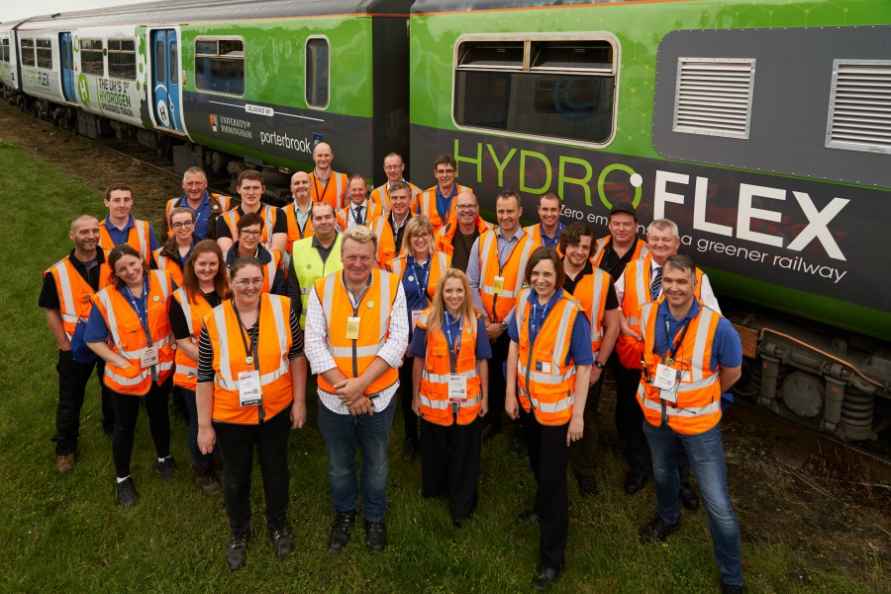Meet HyrdroFLEX, UK’s First Hydrogen Train

As part of its commitment to net zero carbon emissions by 2050, the United Kingdom unveiled its first hydrogen train called HydroFlex. The result of a partnership between Porterbrook, provider of rail leasing and asset management support, and the University of Birmingham’s Centre for Railway Research and Education (BCRRE), the HydroFLEX will be tested on the mainline railway following a successful proof-of-concept. The development of HydroFLEX marks an important step in the development of eco-friendly trains of the future that could help to de-carbonize Britain’s railway.
The HydroFLEX pilot involves the fitment of a hydrogen powerpack to an existing Class 319 train, which would eventually allow it to run on conventional electrified routes as well as independently. This results in a highly flexible train that can operate on different parts of Britain’s rail network. The United Kingdom is still trying to catch up with Germany and Denmark. Germany already has two hydrogen trains in service in Germany but their design is not compatible with the UK’s rail network.
The HydroFLEX project is a collaborativion and partnerships involving many organizations including: Chrysalis Rail for installation, Denchi Group for traction batteries, Ballard Fuel Cell Systems for the fuel cell, Luxfer for hydrogen storage tanks, DG8design support, Derby Engineering Unit for panels and brackets, SNC Lavalin for design and hazard identifications, Aura for exterior livery design and DB Cargo Crewe for the recommissioning of the unit.
“With the government’s recent commitment to net zero carbon emissions by 2050, hydrogen provides a real alternative to diesel transport and electricity,” commented Dr. Mark Lawday, Luxfer’s head of European sales. “This project is an excellent example of Luxfer’s commitment to a clean, green economy across the globe.”
“Our prototype shows how hydrogen powered technology can be incorporated within existing trains, without needing to modify the drivers’ controls. It’s an exciting advance because it shows how this technology could be adopted into the mainline system to deliver emission-free public transport,” said Dr Stuart Hillmansen, Senior Lecturer, Birmingham Centre for Railway Research and Education.
Transport Secretary, Chris Grayling said: “It is fantastic to see government funding helping to drive this innovative project forward, as it progresses to the milestone of mainline testing. Our First of a Kind investment has consistently produced truly ambitious projects developed for the benefit of passengers and freight customers. We are absolutely committed to driving forward a greener, cleaner and more efficient rail network, using new technology to create modern, low-emission trains which can handle a growing number of journeys.”

